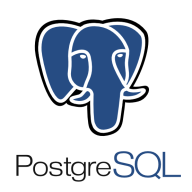

PostgreSQL and InfluxDB compete in the database management category. While both have their strengths, PostgreSQL holds an advantage in traditional database features and scalability, whereas InfluxDB is superior in handling time-series data efficiently.
Features: PostgreSQL is known for supporting complex queries, scalability, and ACID compliance. It is open-source and cost-effective, with strong extensibility through native extensions. InfluxDB specializes in handling time-series data efficiently, offering robust plugins for integration and performance in large dataset queries.
Room for Improvement: PostgreSQL could enhance read-only query performance, SQL functionalities, and setup complexity. InfluxDB faces challenges with high-cardinality data and lacks comprehensive backup options for cloud deployments, along with needing improvement in integration and password encryption support.
Ease of Deployment and Customer Service: Both PostgreSQL and InfluxDB provide multiple deployment options, including on-premises and cloud. PostgreSQL offers broad flexibility but may require experienced staff for optimal setup. InfluxDB benefits from cloud configuration simplicity. Both rely on community support due to their open-source nature.
Pricing and ROI: As open-source platforms, PostgreSQL and InfluxDB eliminate licensing fees, reducing adoption barriers. PostgreSQL is cost-effective with robust community support, offering a solid ROI for enterprises. InfluxDB's ROI is achieved through its time-series capabilities, although larger deployments may face budget impacts due to recent price increases.
| Product | Market Share (%) |
|---|---|
| PostgreSQL | 14.7% |
| InfluxDB | 5.0% |
| Other | 80.3% |
| Company Size | Count |
|---|---|
| Small Business | 5 |
| Midsize Enterprise | 3 |
| Large Enterprise | 8 |
| Company Size | Count |
|---|---|
| Small Business | 57 |
| Midsize Enterprise | 26 |
| Large Enterprise | 46 |
InfluxDB is open-source software that helps developers and enterprises alike to collect, store, process, and visualize time series data and to build next-generation applications. InfluxDB provides monitoring and insight on IoT, application, system, container, and infrastructure quickly and easily without complexities or compromises in scale, speed, or productivity.
InfluxDB has become a popular insight system for unified metrics and events enabling the most demanding SLAs. InfluxDB is used in just about every type of industry across a wide range of use cases, including network monitoring, IoT monitoring, industrial IoT, and infrastructure and application monitoring.
InfluxDB offers its users:
InfluxDB Benefits
There are several benefits to using InfluxDB . Some of the biggest advantages the solution offers include:
Reviews from Real Users
InfluxDB stands out among its competitors for a number of reasons. Two major ones are its flexible integration options and its data aggregation feature.
Shalauddin Ahamad S., a software engineer at a tech services company, notes, “The most valuable features are aggregating the data and the integration with Grafana for monitoring.”
PostgreSQL is a versatile and reliable database management system commonly used for web development, data analysis, and building scalable databases.
It offers advanced features like indexing, replication, and transaction management. Users appreciate its flexibility, performance, and ability to handle large amounts of data efficiently. Its robustness, scalability, and support for complex queries make it highly valuable.
Additionally, PostgreSQL's extensibility, flexibility, community support, and frequent updates contribute to its ongoing improvement and stability.
We monitor all Open Source Databases reviews to prevent fraudulent reviews and keep review quality high. We do not post reviews by company employees or direct competitors. We validate each review for authenticity via cross-reference with LinkedIn, and personal follow-up with the reviewer when necessary.